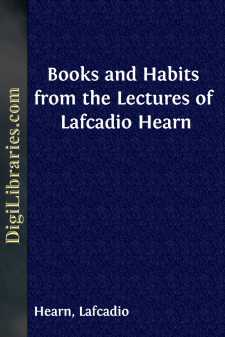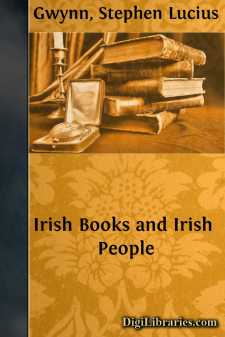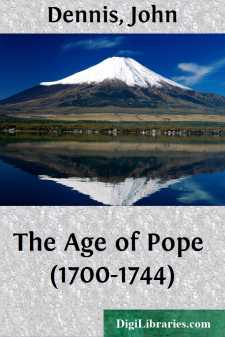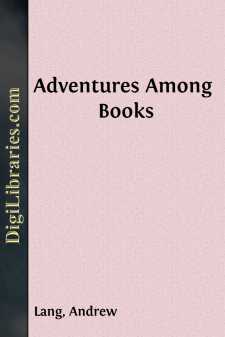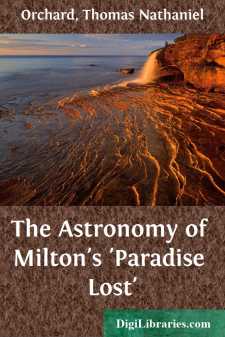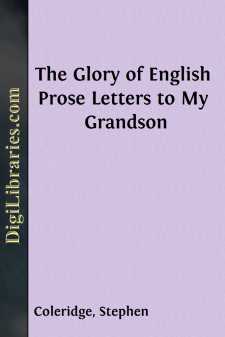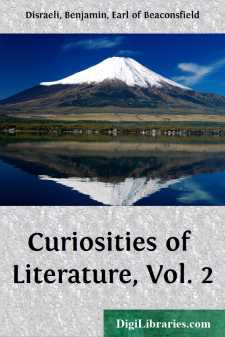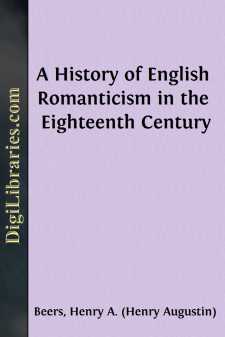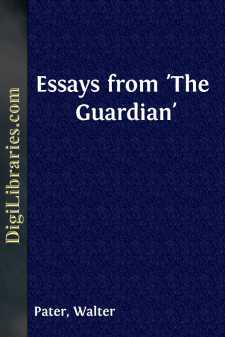Literary Criticism
- American 18
- Ancient and Classical 3
- Asian 1
- Australian & Oceanian 1
- Books & Reading 8
- Caribbean & Latin American 2
- Drama 2
- English, Irish, Scottish, Welsh
- European 7
- General 37
- Horror 1
- Humor 2
- Jewish 2
- Medieval 2
- Middle Eastern 3
- Poetry 7
- Renaissance 6
- Russian & Former Soviet Union 1
- Shakespeare 27
English, Irish, Scottish, Welsh Books
Sort by:
by:
Lafcadio Hearn
Introduction These chapters, for the most part, are reprinted from Lafcadio Hearn’s “Interpretations of Literature,” 1915, from his “Life and Literature,” 1916, and from his “Appreciations of Poetry,” 1917. Three chapters appear here for the first time. They are all taken from the student notes of Hearn’s lectures at the University of Tokyo, 1896-1902, sufficiently described in the...
more...
INTRODUCTION. My publisher must take at least some of the responsibility for reviving these essays. All bear the marks of the period at which they were written; and some of them deal with the beginnings of movements which have since grown to much greater strength, and in growing have developed new characteristics at the expense of what was originally more prominent. Other pages, again, take no account...
more...
by:
John Dennis
INTRODUCTION. The death of John Dryden, on the first of May, 1700, closed a period of no small significance in the history of English literature. His faults were many, both as a man and as a poet, but he belongs to the race of the giants, and the impress of greatness is stamped upon his works. No student of Dryden can fail to mark the force and sweep of an intellect impatient of restraint. His...
more...
by:
Andrew Lang
CHAPTER I: ADVENTURES AMONG BOOKS I In an age of reminiscences, is there room for the confessions of a veteran, who remembers a great deal about books and very little about people? I have often wondered that a Biographia Literaria has so seldom been attempted—a biography or autobiography of a man in his relations with other minds. Coleridge, to be sure, gave this name to a work of his, but he...
more...
CHAPTER I A SHORT HISTORICAL SKETCH OF ASTRONOMY Astronomy is the oldest and most sublime of all the sciences. To a contemplative observer of the heavens, the number and brilliancy of the stars, the lustre of the planets, the silvery aspect of the Moon, with her ever-changing phases, together with the order, the harmony, and unison pervading them all, create in his mind thoughts of wonder and...
more...
1 My Dear Antony,The letters which I wrote "On the world about you" having shown you that throughout all the universe, from the blazing orbs in infinite space to the tiny muscles of an insect's wing, perfect design is everywhere manifest, I hope and trust that you will never believe that so magnificent a process and order can be without a Mind of which it is the visible expression. The...
more...
CHARLES THE FIRST. Of his romantic excursion into Spain for the Infanta, many curious particulars are scattered amongst foreign writers, which display the superstitious prejudices which prevailed on this occasion, and, perhaps, develope the mysterious politics of the courts of Spain and Rome. Cardinal Gaetano, who had long been nuncio in Spain, observes, that the people, accustomed to revere the...
more...
CHAPTER I. The Subject Defined To attempt at the outset a rigid definition of the word romanticism would be to anticipate the substance of this volume. To furnish an answer to the question—What is, or was, romanticism? or, at least, What is, or was English romanticism?—is one of my main purposes herein, and the reader will be invited to examine a good many literary documents, and to do a certain...
more...
by:
Walter Pater
[3] THE making of an anthology of English prose is what must have occurred to many of its students, by way of pleasure to themselves, or of profit to other persons. Such an anthology, the compass and variety of our prose literature being considered, might well follow exclusively some special line of interest in it; exhibiting, for instance, what is so obviously striking, its imaginative power, or its...
more...
by:
Voltaire
INTRODUCTION François Marie Arouet, who called himself Voltaire, was the son of François Arouet of Poitou, who lived in Paris, had given up his office of notary two years before the birth of this his third son, and obtained some years afterwards a treasurer’s office in the Chambre des Comptes. Voltaire was born in the year 1694. He lived until within ten or eleven years of the outbreak of the...
more...


